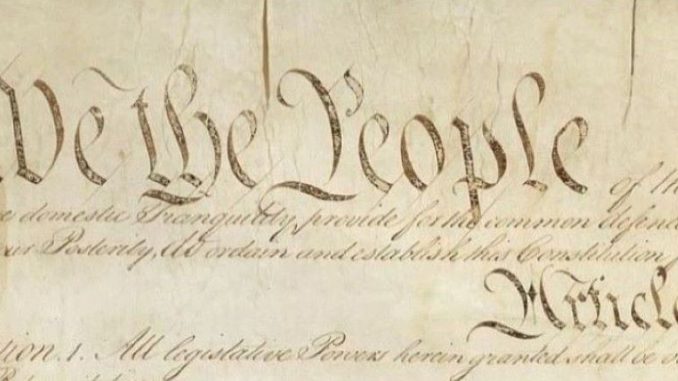
LiveActionNews.org — Occasionally, people send me comments they’ve seen and ask for my thoughts. Sometimes crafting a response isn’t easy. That wasn’t the case here:

As you can see, the author thinks pro-lifers should read the Constitution. She might wanna take a look at it herself. If she did, she’d realize that Section 1 of the 14th Amendment says a state can’t “deprive any person of life, liberty, or property, without due process of law; nor deny to any person within its jurisdiction the equal protection of the laws.”
Clearly, people do have a Constitutional right to life, and they don’t have to be 18 to enjoy it. And if a fetus is a person, then that right should protect her or him as well. Who said that? Justice Harry Blackmun–the guy who gave us Roe v. Wade.
Justice Blackmun wrote the majority opinion in Roe, and on page 156 he noted:
The appellee and certain amici argue that the fetus is a “person” within the language and meaning of the Fourteenth Amendment. In support of this, they outline at length and in detail the well known facts of fetal development. If this suggestion of personhood is established, the appellant’s case, of course, collapses, for the fetus’ right to life would then be guaranteed specifically by the Amendment. The appellant conceded as much on reargument.
Blackmun got around this by deciding a fetus simply isn’t a person. Given that there’s a heartbeat and fingernails in the first trimester and the ability to feel pain in the second, it seems odd that personhood doesn’t start until birth. And while the “facts of fetal development” are obvious, the constitutional “right” to an abortion is a lot more obscure.
RELATED NEWS: If Late-Term Abortion Isn’t Torture, What Is?
The Constitution never mentions abortion. Still, Blackmun insisted it was protected under the “right of privacy.” Where’s that right laid out? Well, Blackmun himself admitted, “The Constitution does not explicitly mention any right of privacy.” That didn’t stop him from finding one:
This right of privacy, whether it be founded in the Fourteenth Amendment’s concept of personal liberty and restrictions upon state action, as we feel it is, or, as the District Court determined, in the Ninth Amendment’s reservation of rights to the people, is broad enough to encompass a woman’s decision whether or not to terminate her pregnancy.
In other words, Blackmun ignored a right that’s explicitly listed (the right to life) while embracing one he couldn’t locate. If that doesn’t make sense to you, you’re not alone, and it illustrates why pro-lifers want justices who understand what the Constitution says and interpret it accordingly. As for the comment above, I agree that pro-lifers should “read the Constitution”–it would be nice if our opponents did the same. And what would be even better?
Watching President Trump pick a new Supreme Court justice who does too.
The original version of this article was published on August 1, 2016 at Live Action News. This reprint has been updated, with permission.
Be the first to comment